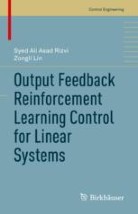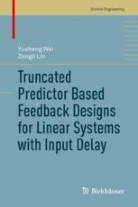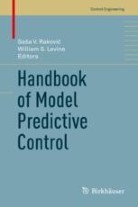
About this book series
Control engineering is an increasingly diverse subject, whose technologies range from simple mechanical devices to complex electro-mechanical systems. Applications are seen everywhere, from aviation and robotics to biological systems and power systems. Some methods for the analysis and design of control systems – robust and nonlinear designs, for example – are based on sophisticated mathematics, while others, such as PID control, are understood and implemented through experimentation and empirical analysis. Additionally, learning-based control is attracting attention from both control theorists and engineering practitioners.
The Birkhäuser series Control Engineering covers a wide range of topics pertaining to both theory and practice, from techniques for analysis and design to hardware implementation, test, and evaluation. While recognizing the harmony between abstract theory and physical application, these publications emphasize real-world results and concerns, including amount of abstraction required and issues of consequence, such as cost, tradeoffs, reliability, and power consumption.
Topic areas include but are not limited to:
- General techniques of control system analysis and design
- Robotics and automation
- Learning-based control
- Computer-aided control system analysis and design
- Modeling and simulation
- Process control
- Digital control
- Instrumentation, hardware, and software for control
- Power systems
- Cyber physical systems
- Control of transportation systems
- Control of manufacturing processes
- Electrical and electronic controls
- Mechanical and aeronautical controls
- Control in mining and metallurgy
The series includes professional expository monographs, advanced textbooks, handbooks, and thematic compilations of applications/case studies.
- Electronic ISSN
- 2373-7727
- Print ISSN
- 2373-7719
- Series Editor
-
- Zongli Lin
Book titles in this series
-

-
Truncated Predictor Based Feedback Designs for Linear Systems with Input Delay
- Authors:
-
- Yusheng Wei
- Zongli Lin
- Copyright: 2021
Available Renditions
- Hard cover
- Soft cover
- eBook

-
Handbook of Model Predictive Control
- Editors:
-
- Saša V. Raković
- William S. Levine
- Copyright: 2019
Available Renditions
- Hard cover
- Soft cover
- eBook

-
Optimal Space Flight Navigation
An Analytical Approach
- Authors:
-
- Ashish Tewari
- Copyright: 2019
Available Renditions
- Hard cover
- eBook

-
Stability and Performance of Control Systems with Actuator Saturation
- Authors:
-
- Yuanlong Li
- Zongli Lin
- Copyright: 2018
Available Renditions
- Hard cover
- Soft cover
- eBook

Abstracted and indexed in
-
- zbMATH
